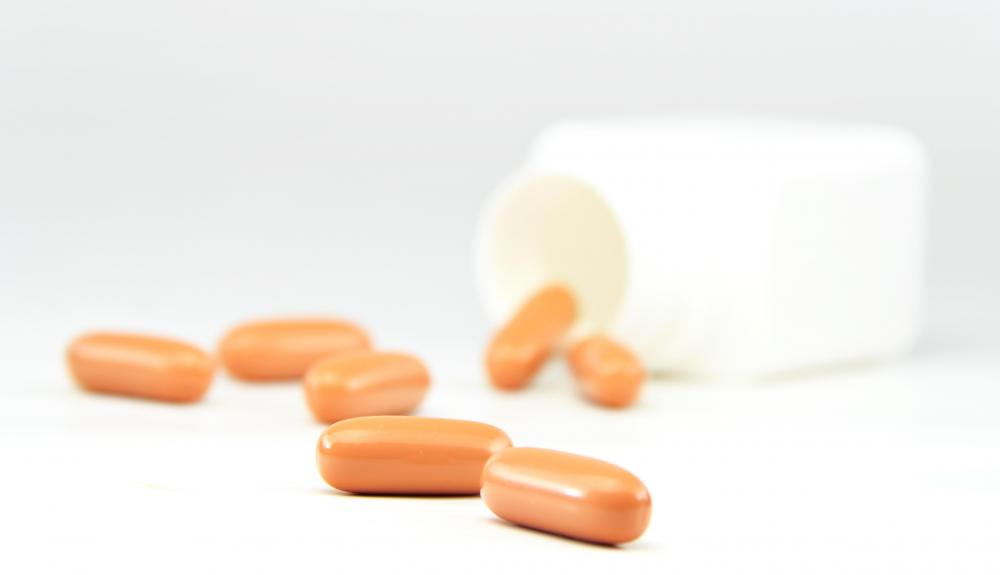At WiseGEEK, we're committed to delivering accurate, trustworthy information. Our expert-authored content is rigorously fact-checked and sourced from credible authorities. Discover how we uphold the highest standards in providing you with reliable knowledge.
What Are the Benefits of Selenium for Cancer?
Supplements of selenium for cancer might offer some protection for people who lack sufficient levels of the mineral in their bodies. Human studies show people with low levels of selenium face higher risks of developing cancer, but once selenium reaches normal levels, taking additional doses of selenium for cancer probably does no good. Animal studies show a significant benefit of selenium for cancer prevention, but no evidence exists to prove similar benefits in humans. In fact, too much selenium might pose health risks.
More than 200 animal studies on selenium for cancer have been conducted since the 1970s. Two-thirds of these research projects showed selenium might retard or inhibit the growth of tumors by 15 to 35 percent. Animals given more than 30 times the recommended daily amount of the mineral for humans showed significant protection against cancer. Only one of the experiments found no correlation.

Eight enzymes in the human body require selenium for antioxidant functions. Researchers believe selenium levels might be altered by increased levels of vitamin E and vitamin C. Selenium occurs naturally in rocks and soil, allowing absorption of the mineral by plants. The recommended daily amount necessary for good health varies among health organizations, but between 30 and 50 micrograms a day is considered adequate.

Most research on selenium for cancer has consisted of observational studies. Scientists analyzed study participants' diets and blood levels of selenium, and recorded which participants developed cancer later. Only a handful of these experiments involved random, scientific trials using control groups given placebos. The random trials showed no correlation between the mineral and prevention of cancer, specifically skin and prostate cancers. Researchers who examined numerous prior studies reported in 2011 that too much selenium might increase the risk of diabetes.

One study added selenium to salt fed to Chinese men who live in areas where selenium in the soil is scarce. They were also given high doses of carotene and vitamin E. Results showed fewer instances of esophageal and stomach cancer. Researchers could not determine whether selenium supplements corrected a deficiency or what role vitamins played in the findings.

Scientists concluded too little selenium or too much of the mineral might pose health risks. Toxic effects of excessive selenium include an impaired immune system, fatigue, hair loss, and thin fingernails. Some scientists advise against taking more than 200 micrograms of selenium a day to avoid adverse reactions.
AS FEATURED ON:
AS FEATURED ON:















Discussion Comments
The good thing about selenium is that the mineral is found in many healthy foods. At the top of the list are nuts and grains. My favorite two types of nuts, Brazil nuts and walnuts are great ways to get selenium. You can find it in salt water fish such as tuna and cod, and you can also find it in beef and chicken, so there are plenty of choices if you think you need to increase the amount of selenium you eat.
Selenium is said to help other conditions like asthma, but there is no research that says this is definitely the case. I guess we'll have to wait for more research to know for certain.
@mobilian33 - Since selenium is a mineral found in water and some foods, most people in the United States get the recommended daily allowance without even trying. So, chances are you are getting all of the mineral you need and maybe more. Of course, you can always take supplements, but you should have your levels checked just to be sure you don't get too much, which can lead to other health problems such as those mentioned in this article.
There is a history of colon cancer in my family, mostly on my father's side of the family. So when I heard someone on TV saying that selenium was good for fighting cancer, I wanted to find out more about what it is and how it works.
I have read about a lot of foods that are supposed to be good for cancer, but it's hard to know what to believe sometimes. From reading this article, it sounds like selenium really hasn't been tested enough to know whether it can help fight cancer or not. Though, I guess it is a good idea to make sure you are getting the recommended daily amount just in case.
Post your comments